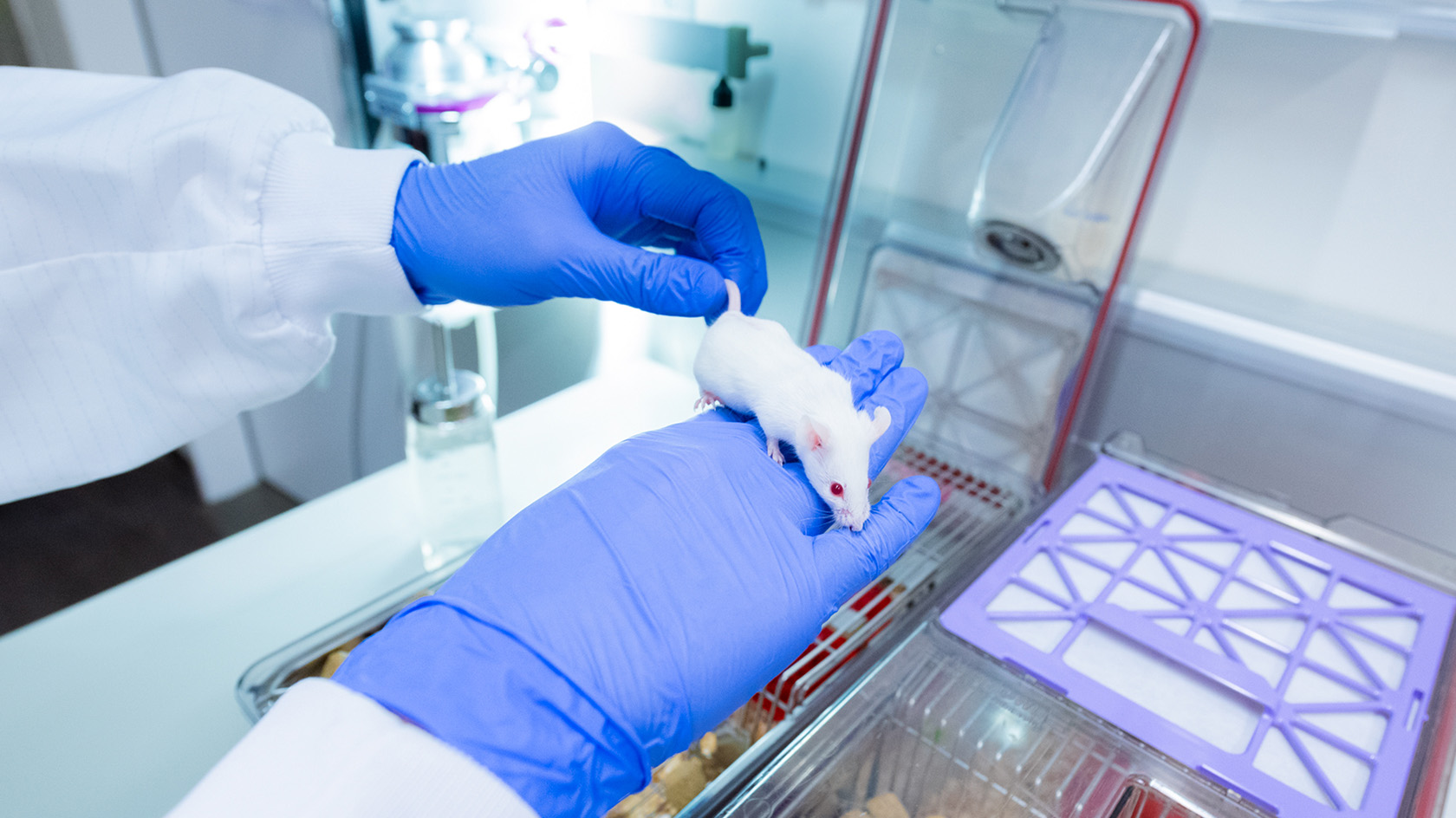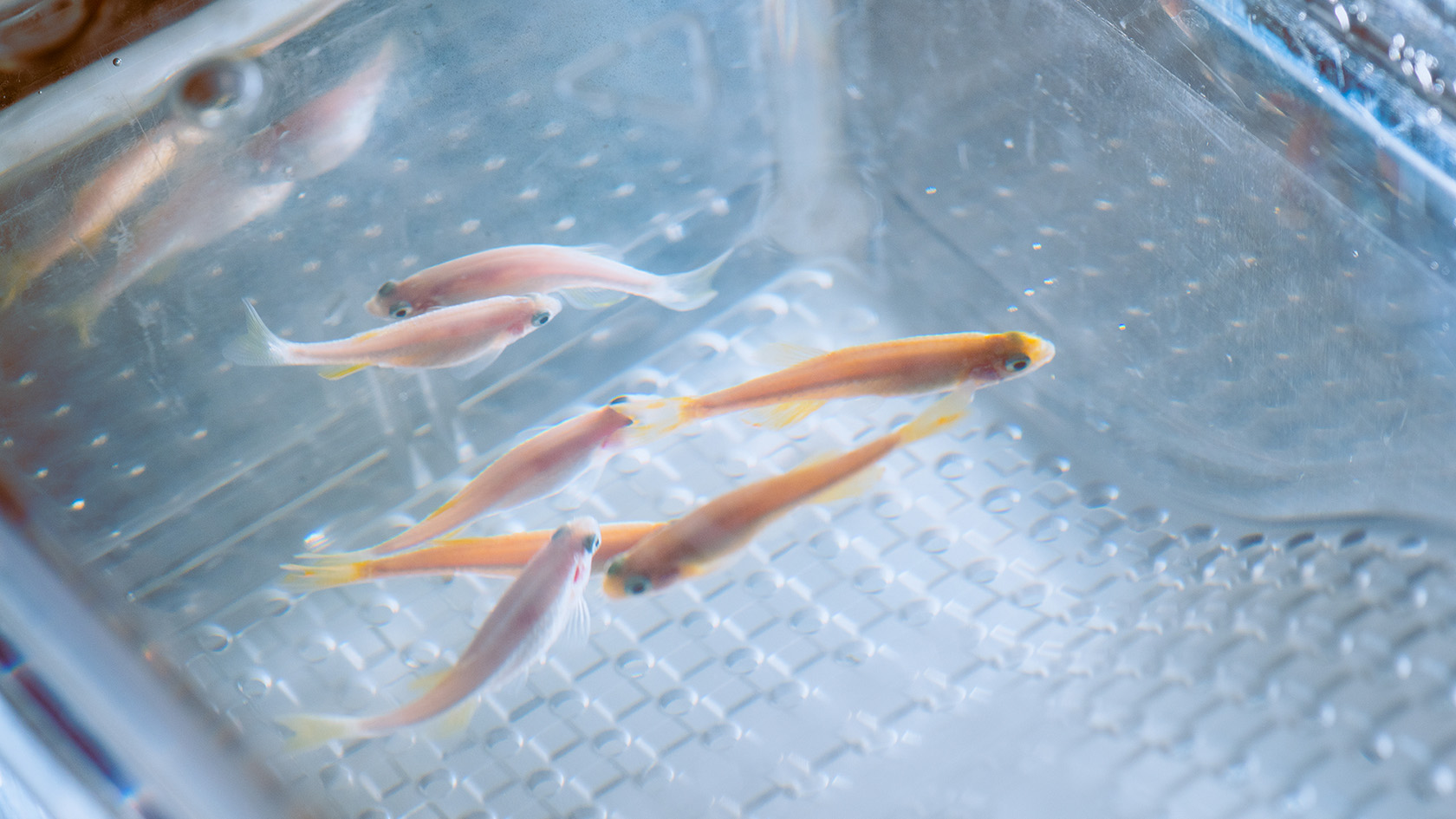“We now have robust figures”
Benjamin Ineichen leads a research group at the Center for Reproducible Science, an interdepartmental center of excellence at the University of Zurich (UZH). To find out how useful animal testing is for human medicine, his group conducted a meta-analysis using more than 120 systematic review studies covering 367 different therapies for 54 human diseases.
The conclusion? Fifty percent of therapies tested on animals resulted in clinical research studies on humans, and forty percent led to randomized controlled trials – double-blind clinical trials with placebos, the gold standard in human medical research. On average, it takes five years for animal studies to result in studies on humans, seven years until randomized controlled trials and ten years until health authorities approve a therapy or medication.
We sat down with Ineichen to discuss these findings.
Mr Ineichen, your meta-analysis shows that five percent of therapies tested on animals end up being approved for use in humans. Is that a little or a lot?
Benjamin Ineichen: This depends heavily on how you interpret the results. At first glance, five percent may not seem like a lot. But you have to consider how difficult it is to develop effective new therapies and how great the utility of a drug is for people who suffer from an illness.
Take, for example, multiple sclerosis, which impacts around three million people worldwide: Several of the medicines currently approved for this illness only exist because of animal studies. For people suffering from MS, these drugs are blessing. On the other hand, apart from animal experiments with severity level 0, which means without stress or pain there's no such thing as experimental animal research without suffering. That's a fact. In order to determine whether a study is appropriate or not, you always need to weigh the potential benefits for humans against the possible burden on the animals.
Half of animal studies led to clinical trials on humans, and two out of five even led to randomized controlled trials. Is that evidence in favor of animal studies as a research method to develop new therapies?
We were surprised that the success rates were so high. But these figures alone don't tell us whether animal testing is appropriate for developing new therapies. What counts is how many results from animal experiments ultimately find a medical application in humans, and this figure stands at five percent, as previously stated.

Thanks to our findings, we can now have an informed debate about the importance and translation of animal experiments.
What triggered your interest in this research question?
Originally, I’m a doctor by training and also worked a few years in a clinical setting. After that, I spent several years doing animal testing and worked with mice, rats and even primates. Because I am familiar with both animal and clinical research, I've been interested in this question for while – the question of how the research and development process translates from animals to humans, potentially resulting in an approved treatment.
In order to analyze the quality of this translation process, we need an empirical basis – meaning hard figures. Until now, this basis has been absent, but my research group has now filled the gap.
So you're telling me that this important and controversial ethical question had not been comprehensively investigated until now?
Researchers have looked into this question for individual diseases like stroke and multiple sclerosis, albeit a few years ago. But a more overarching analysis of the success rate of animal testing in terms of approved medications had never been made.
Opponents and critics of animal testing have been arguing for many years that the findings from animal experiments don't translate well enough into use cases for humans. Do you share this view?
This argument was made a lot ahead of the 2022 referendum on animal testing, which really annoyed me, because at that point there were hardly any empirical figures on this topic, particularly not on a large scale. This was one of the reasons that prompted us to conduct this study.
In a lot of areas of research, findings from animal testing correspond well to earlier studies on humans, studies from phase I and II clinical trials. Phase III is comparatively very labor intensive and expensive. Could it be that certain therapies won’t make it to the approval phase because of economic considerations?
Our study breaks down a highly complex process into one figure. It's important to keep the entire context in mind. This process involves various stakeholders: academic researchers and the pharma industry, for example – quite different fields of interest. Pharma companies evaluate how much it costs to develop a drug, whether there's a profitable market for it and whether the drug can be patented. All of these aspects play a role in deciding which results from animal or early clinical studies should be followed up. That means that economic considerations can certainly be a reason why a medicine doesn't make it to market.
There are highly promising therapies, for instance for Alzheimer's disease, that don't make it past the strict requirements of large randomized controlled trials. Why is that?
For a long time now, people have been claiming that the results of animal studies translate poorly into humans, particularly in neurology and cancer research. I think this has to do with the fact that the low hanging fruit has already been harvested in these fields. Chronic diseases like Alzheimer's, Parkinson’s and amyotrophic lateral sclerosis (ALS) are based on highly complex pathological mechanisms that we don't quite understand yet. The search for effective treatment is therefore difficult. It's the same situation when it comes to treatments for strokes.
Are there other reasons why animal experiments don’t lead to approved drugs more often?
One reason has to do with how these studies are conducted. Large randomized clinical trials are carried out according to rigorous standards. For instance, neither the study leader nor the test subjects know who receives a placebo and who receives an active substance.
In animal studies, however, there's often no blinding or randomization. And study protocols have so far only been registered in advance in exceptional cases. These protocols precisely set out in advance the study hypothesis, how the sample size will be determined and what the primary and secondary outcomes are. These measures minimize false positives and make the research results more robust.
In my view, drug testing on animals would benefit enormously from moving more towards the strict standards of randomized clinical trials. This would require that the researchers receive appropriate training and that editors of scientific journals demand it.
Another reason for animal experiments leading to different results than clinical studies is that they are working with different types of questions.
What does that mean, exactly?
Animal studies focus primarily on biological mechanisms, while clinical trials focus more on the effectiveness and side effects of a therapy.
Is more alignment required here?
Theoretically that would be possible, but it’s not desirable. Rats don’t have Alzheimer’s disease or multiple sclerosis. Scientists model these human diseases in an animal test subject. This is an artificial scenario that doesn't correspond one-to-one with human disease. How well stroke medication works on a rat is less important for people than the question of how exactly the medicine works. So I actually think it makes a lot of sense to work with different questions in human studies and animal studies.
What do you think works well about how animal studies are currently conducted?
Researchers are aware of how low the translation rate is and know that something has to change. There are a lot of international initiatives and alliances dedicated to improving the quality of animal studies. I think that this development just needs time.
Animal studies and clinical tests sometimes analyze objectives that are not important for patients’ real-life situations. Is that one of your points of criticism?
Yes. At times animal studies select objectives that are unimportant or even completely irrelevant for humans. If stroke medication is being tested on a rat, it's probably more important to observe the fine motor skills of the animal rather than counting how many nerve endings in the brain and spinal cord have recovered.
Are you planning any additional research on this topic?
Currently, my interdisciplinary team is working on analyzing the translation of findings when it comes to neurological and psychiatric diseases. We want to systematically check whether every individual therapy that's been tested on animals has been tested on humans, whether it reached phase I, II or III, and whether it's been approved. It's probably tens of thousands of drugs and treatments that we want to analyze.
The objective is to use this large number of studies, despite all the variability, to pinpoint factors that contribute to a drug receiving approval or not. We can then use this as an empirical basis to optimize the entire process.
Is the success rate higher with research methods that don't use animals?
We actually wanted to analyze the translation rate of animal-free research methods, for instance in the medtech field. But this is extremely difficult, since there's no centralized register or no access to the data.
So there is no scientific evidence for the claim that animal-free research methods translate better into humans?
There are at least no figures that I'm aware of.
To wrap up, one more question about basic research: How do you think your study contributes to answering questions about how and under what conditions animal testing should be permitted in basic research?
In my view, it's generally correct that biomedical basic research needs to have a medical use case if we are to justify animal testing. However, these use cases can often be indirect, and it's therefore very difficult to measure – and that’s something we didn't cover in our study.
Signatures are currently being collected for the next referendum on a ban on animal testing. What does your study contribute to the debate?
Thanks to our findings, we can now have an informed debate about the importance and translation of animal experiments. Our study also shows how high the translation rate is for various diseases such as cardiovascular conditions, cancer, neurological problems, musculoskeletal disorders and psychiatric illnesses. We now have robust figures for this discussion.


